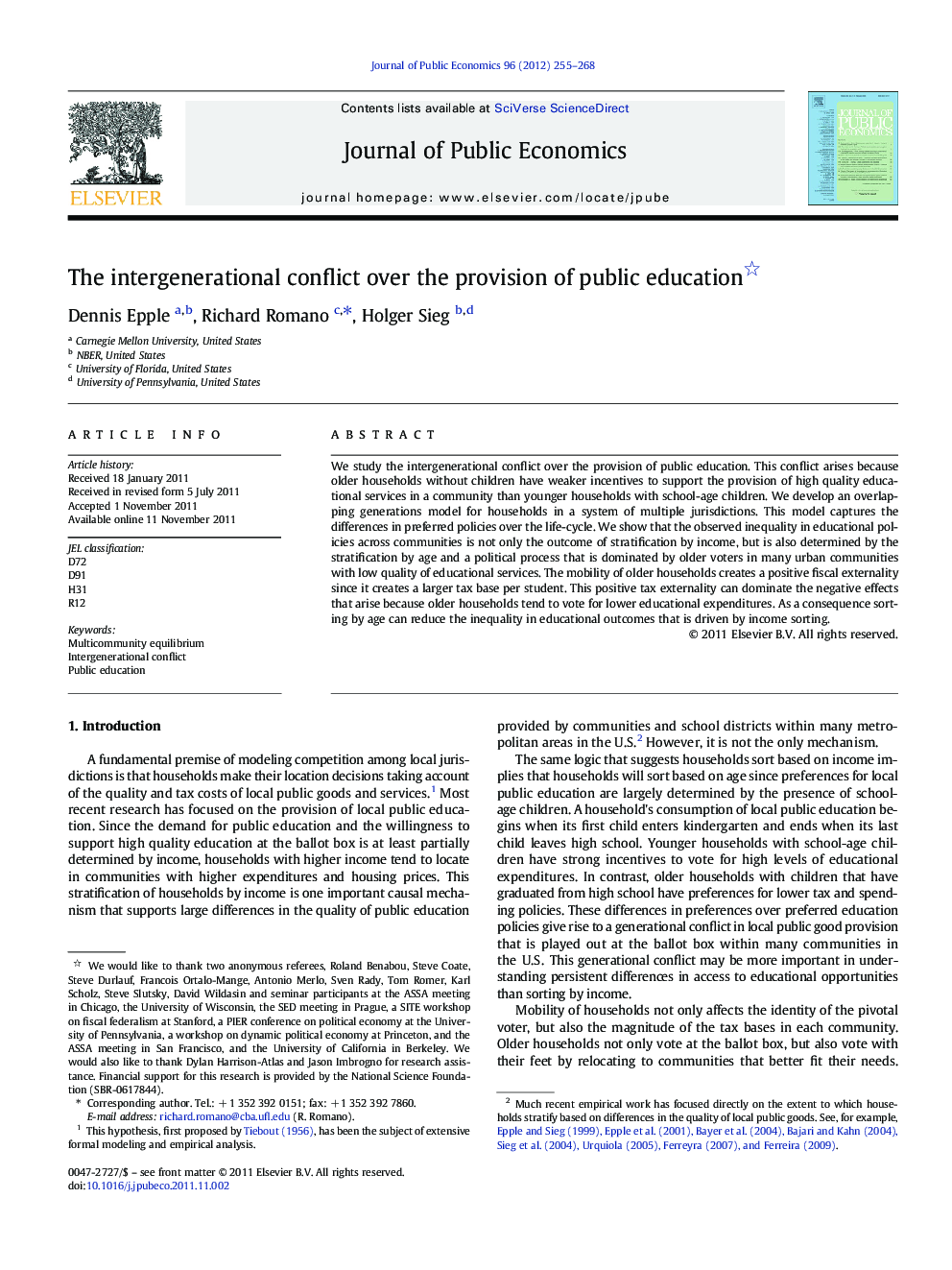| Article ID | Journal | Published Year | Pages | File Type |
|---|---|---|---|---|
| 968976 | Journal of Public Economics | 2012 | 14 Pages |
We study the intergenerational conflict over the provision of public education. This conflict arises because older households without children have weaker incentives to support the provision of high quality educational services in a community than younger households with school-age children. We develop an overlapping generations model for households in a system of multiple jurisdictions. This model captures the differences in preferred policies over the life-cycle. We show that the observed inequality in educational policies across communities is not only the outcome of stratification by income, but is also determined by the stratification by age and a political process that is dominated by older voters in many urban communities with low quality of educational services. The mobility of older households creates a positive fiscal externality since it creates a larger tax base per student. This positive tax externality can dominate the negative effects that arise because older households tend to vote for lower educational expenditures. As a consequence sorting by age can reduce the inequality in educational outcomes that is driven by income sorting.
► Intergenerational conflict over education provision. ► Tiebout sorting by age and income in a Metropolitan area. ► Life cycle mobility and provision of local public goods. ► Voting for education over the life cycle. ► Property taxation and household demographics.
